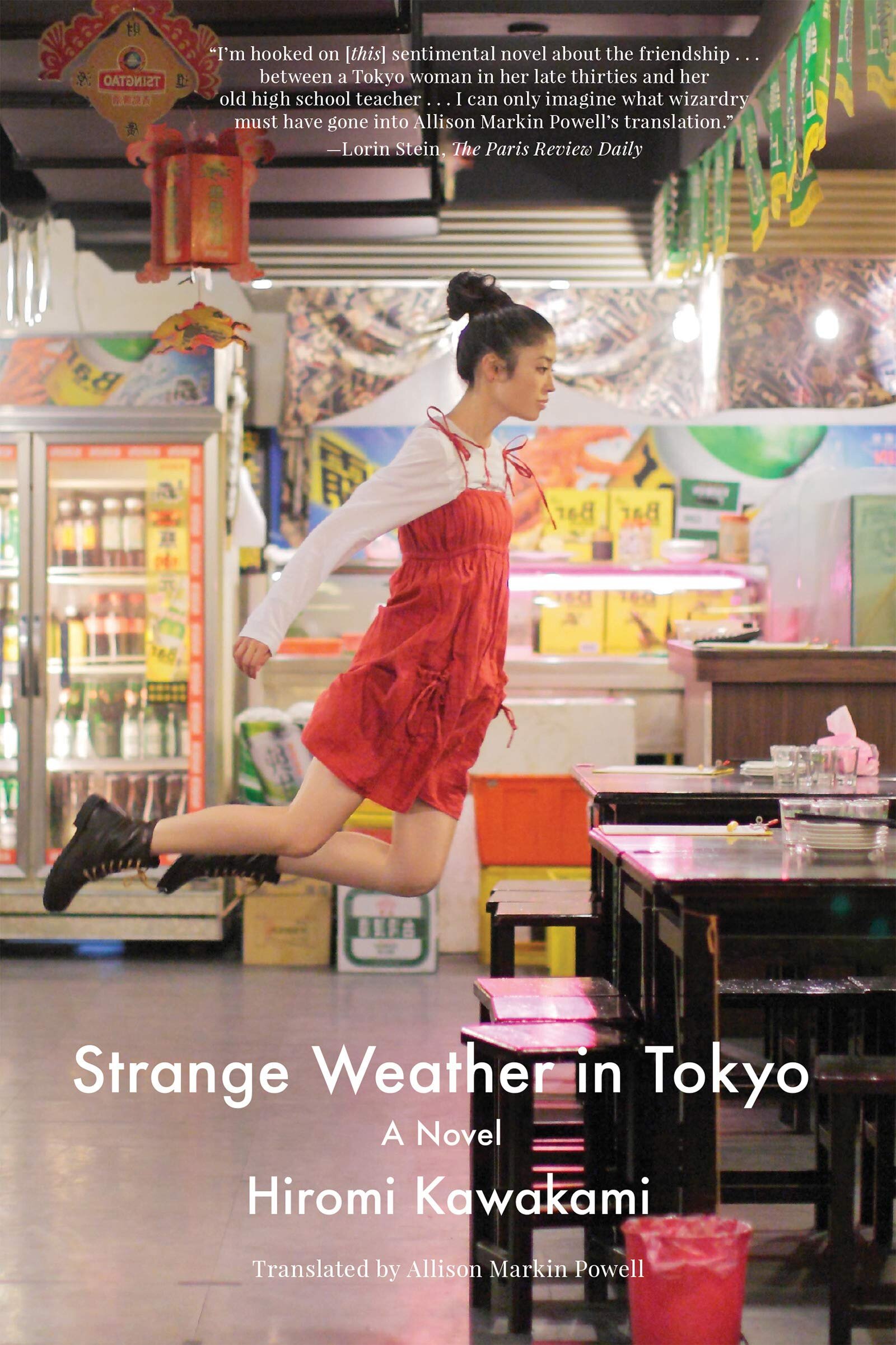Strange Weather in Tokyo by Hiromi Kawakami
A review of Hiromi Kawakami’s Strange Weather in Tokyo
“If the love is true, then treat it the same way you would a plant—fertilize it, protect it from the elements—you must do absolutely everything you can. But if it isn’t true, then it’s best to just let it wither on the vine.”
Strange Weather in Tokyo by Hiromi Kawakami (2013). Published in English by Portobello Books.
When I first started this novel, I thought it to be quite strange and creepy. It had been on my To-Be-Read list for years now, ever since it came out, because I had been at a rabbit hole of contemporary Japanese literature about loneliness. And it really fit that bill, that’s for sure.
I find this cover to be so artistic and captivating, which disappointed me because I really liked the cover but not the novel itself. It’s just so artistic! Artsy things are right up my alley, in case you weren’t aware.
This is going to be an interesting reviw to relive through, so let’s jump straight into it.
Book Blurb
Tsukiko is drinking alone in her local sake bar when by chance she meets one of her old high school teachers and, unable to remember his name, she falls back into her old habit of calling him 'Sensei'. After this first encounter, Tsukiko and Sensei continue to meet. Together, they share edamame beans, bottles of cold beer, and a trip to the mountains to eat wild mushrooms. As their friendship deepens, Tsukiko comes to realise that the solace she has found with Sensei might be something more.
Content / Writing
Let’s begin my first qualm with this book: this thirty-year old woman is reconnecting with her high school teacher, and they then promptly get into a romance with each other. She’s lonely. He’s lonely. It seems like the perfect, logical conclusion. This is my personal bias coming in, but I just can’t get with that storyline. It’s a bit creepy, because his first memory of her is when she is underage, and I can’t get past that, especially because it’s heavily implied that he still sees her as a high schooler that he’s teaching. Perhaps he’s made with grief—his wife had just died—but it comes across as a bit predatory.
The novel basically is just set there in that bar of theirs as well as various dates of sorts throughout the area, despite them not explicitly being labeled as dates. They go on walks, they go to museums, at one point they go with the bartender to collect mushrooms. Nothing better than third-wheeling with your customers, am I right?
The writing itself is fine. It’s a short read, and it flows very quickly. Lots of dialogue, because we have these two lonely people finding solace in each other, and so they talk a lot. Sometimes it’s humorous, sometimes it’s fighting. Noticing a common theme among the Japanese and Korean books I’ve been reading as of late—they’re more like a series of interconnected vignettes and scenes, and they’re all about the same length: ~170 pages, give or take twenty pages. Perhaps this is the trend of the late 2010s/early 2020s literary scene among women writers. Check back in with me in ten years to confirm or deny if this is true.
Characters
The characters themselves are quite interesting, outcasts in society, whether it’s Japanese or any society. Our main character is an office worker who virtually has no one; she doesn’t have friends, she drinks a lot, and she thinks dating is a waste of time. Sounds a bit like me in twenty years, but not the point. The high school teacher, who is referred to as Sensei, is also an oddity in society. He dresses funny to the norm, he still acts like he’s teaching her as a high schooler, and he constantly criticizes her for not remembering things he said to her while she was in high school.
I can totally relate to Tsukiko, the main narrator, the officer worker who has no one around. When I lived in New York City, which is a metropolitan city like Tokyo, there was this distinct brand of loneliness that followed me around. I prefer to be alone, but when in NYC, it almost felt suffocating because I was surrounded by people all the time. It was so tiring, to the point where it affected my mental health. However, getting together with your widowed high school teacher is not something I’d imagine most people I know doing.
Overall Thoughts
It’s an interesting musing on loneliness throughout generations and in urban spaces, but I cannot get past the fact the plot is about the high school teacher and the girl. Maybe because I’m used to looking at gender issues from a critical lens, I find the teacher’s behavior to be problematic, especially if he is referring to her in her high school age. I totally get that she’s so lonely to the point she will do this, but it’s sad to read narratives of women trying to conform in order to survive in this world. She just also didn’t try much to connect to people, so it was fascinating that she reverted to a comfortable figure from her past, one who was revered, but in reality has fallen from grace. Yet, still, she’s putting him on a pedestal.
